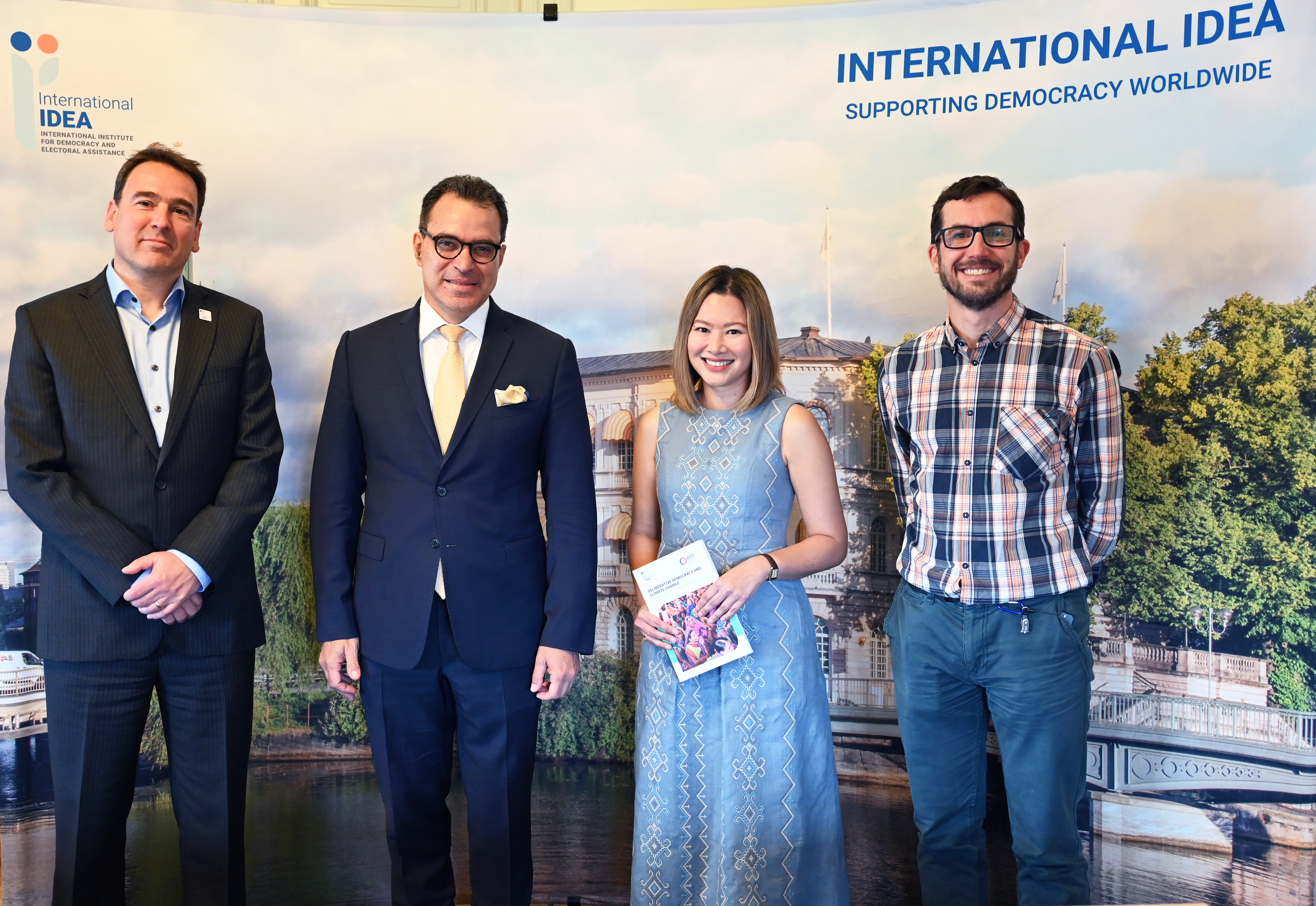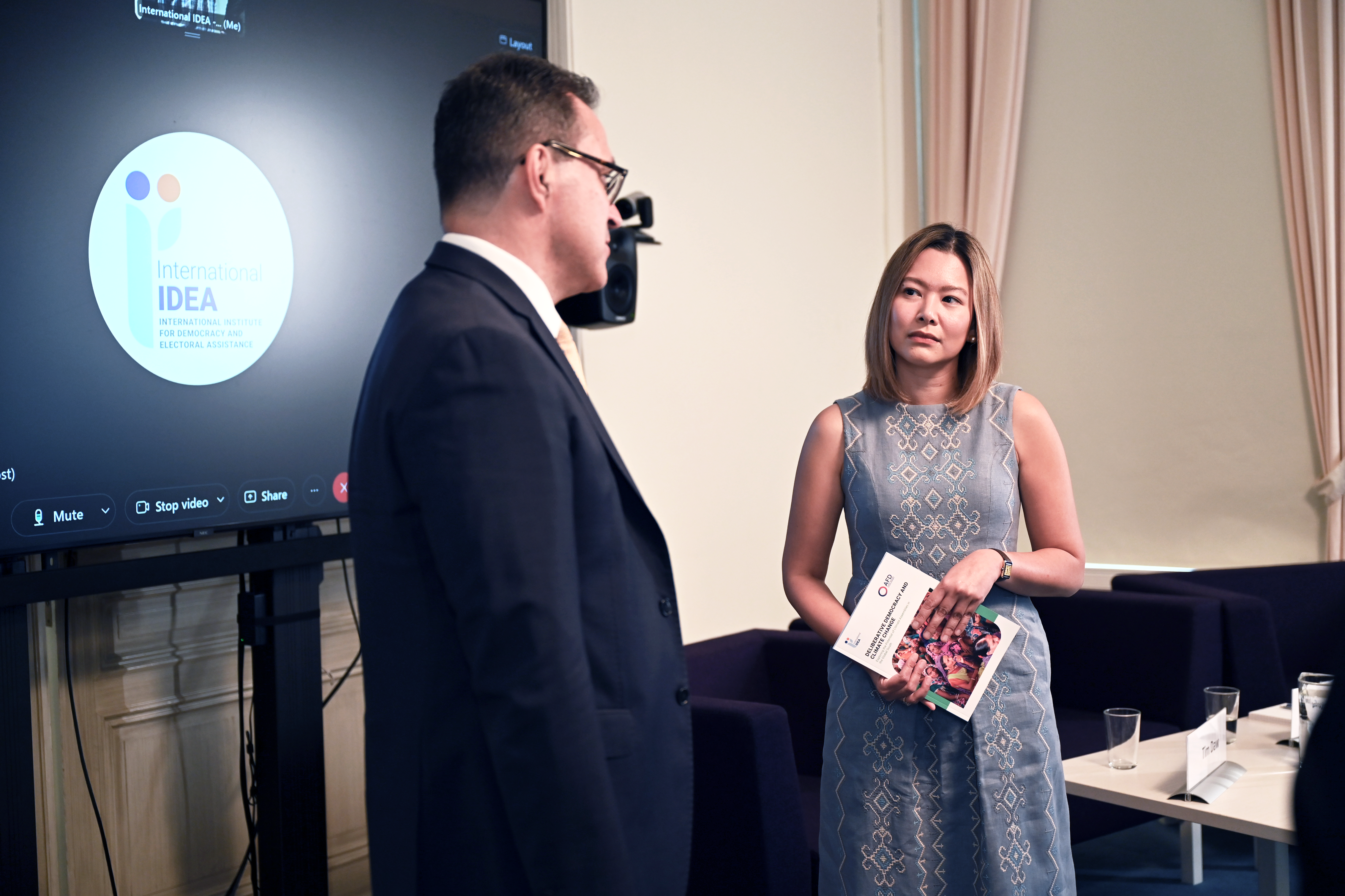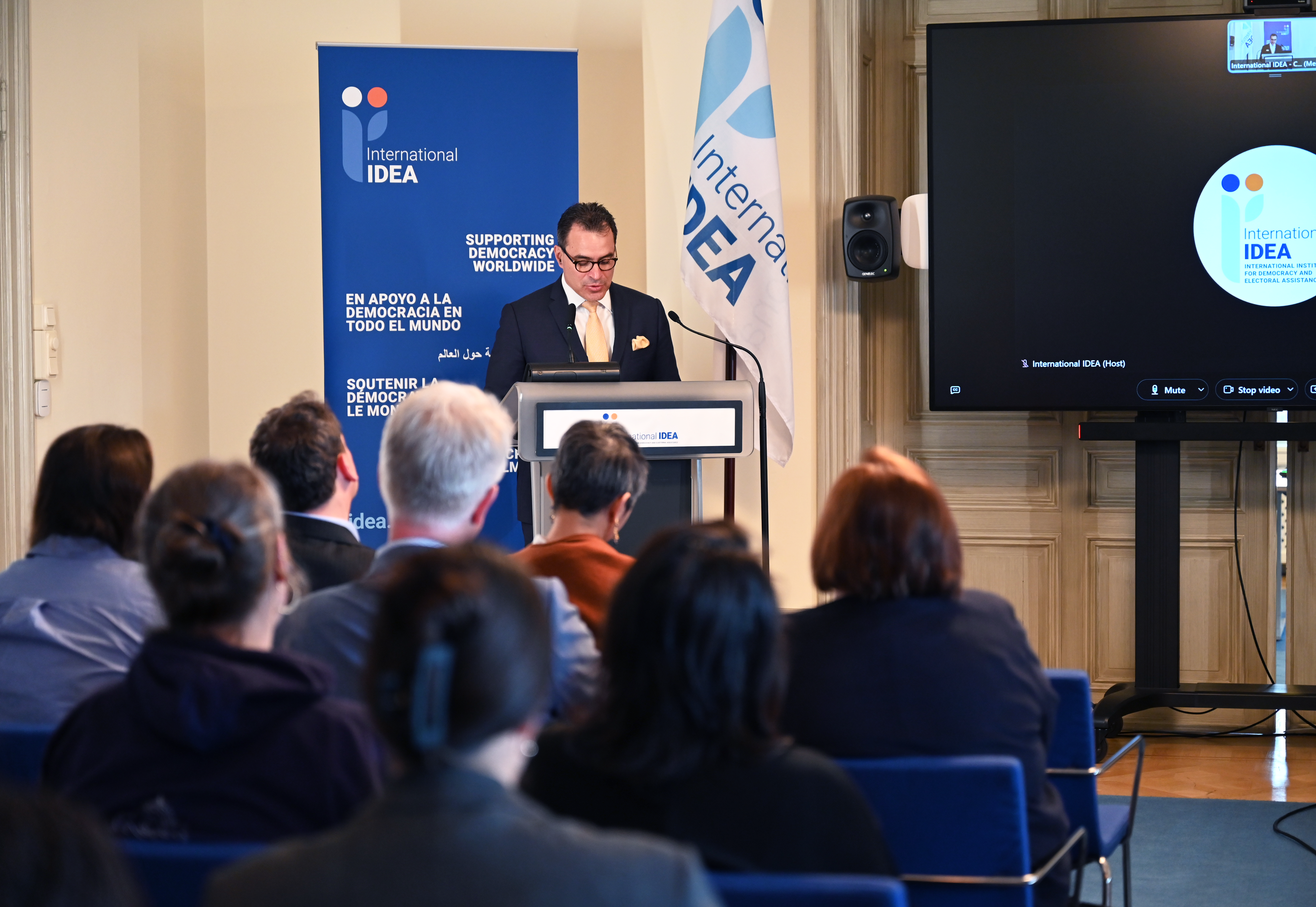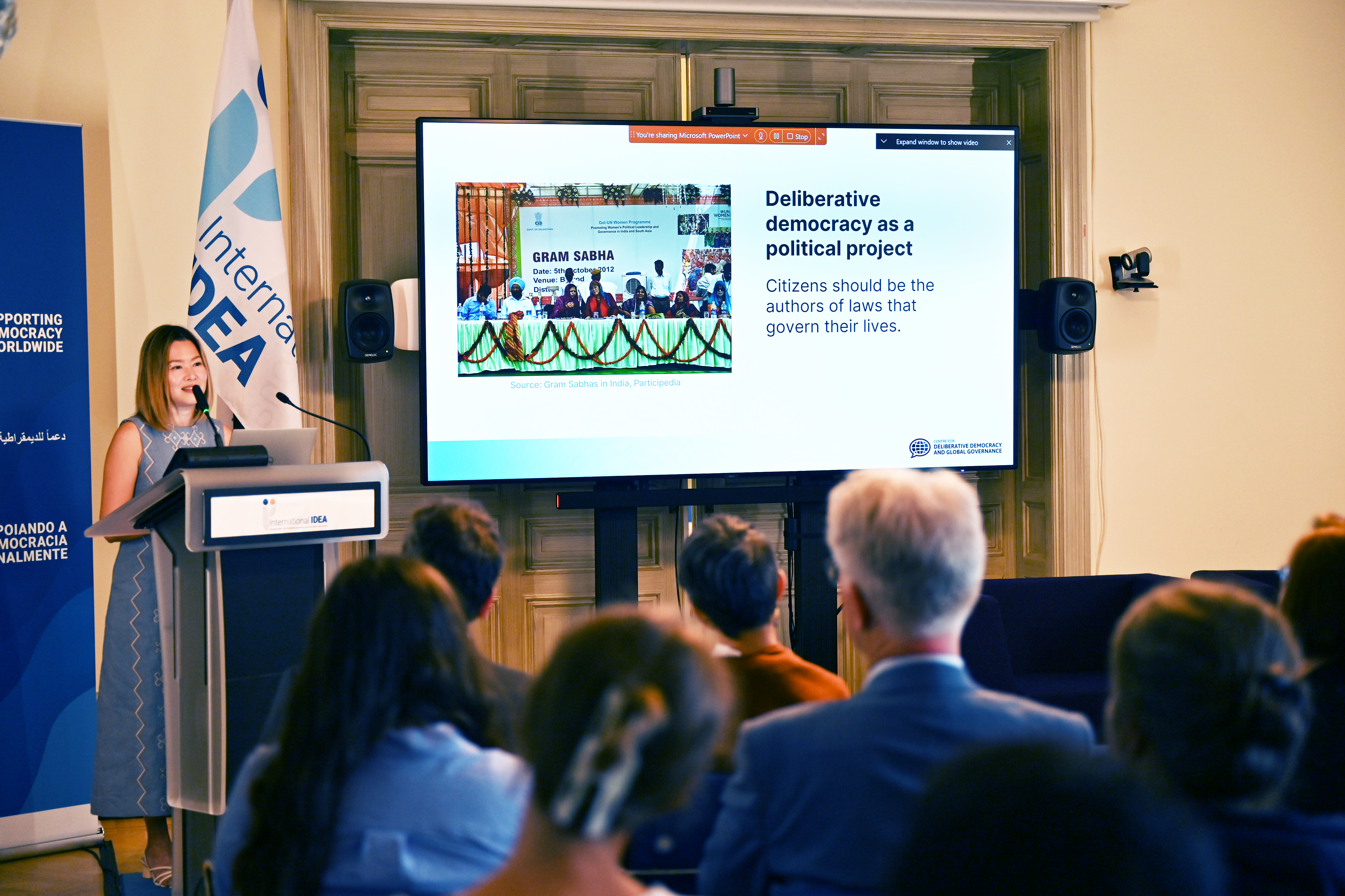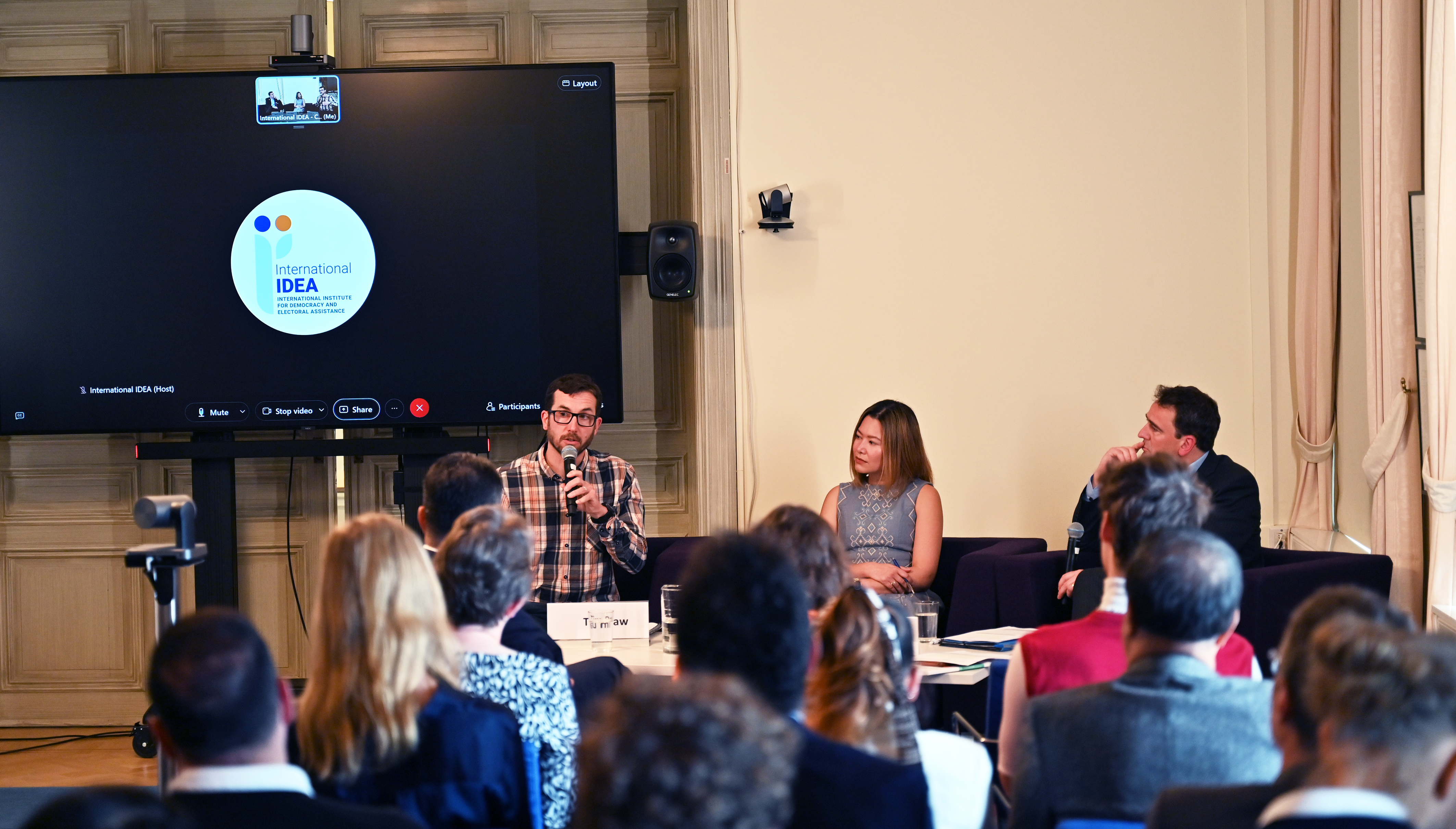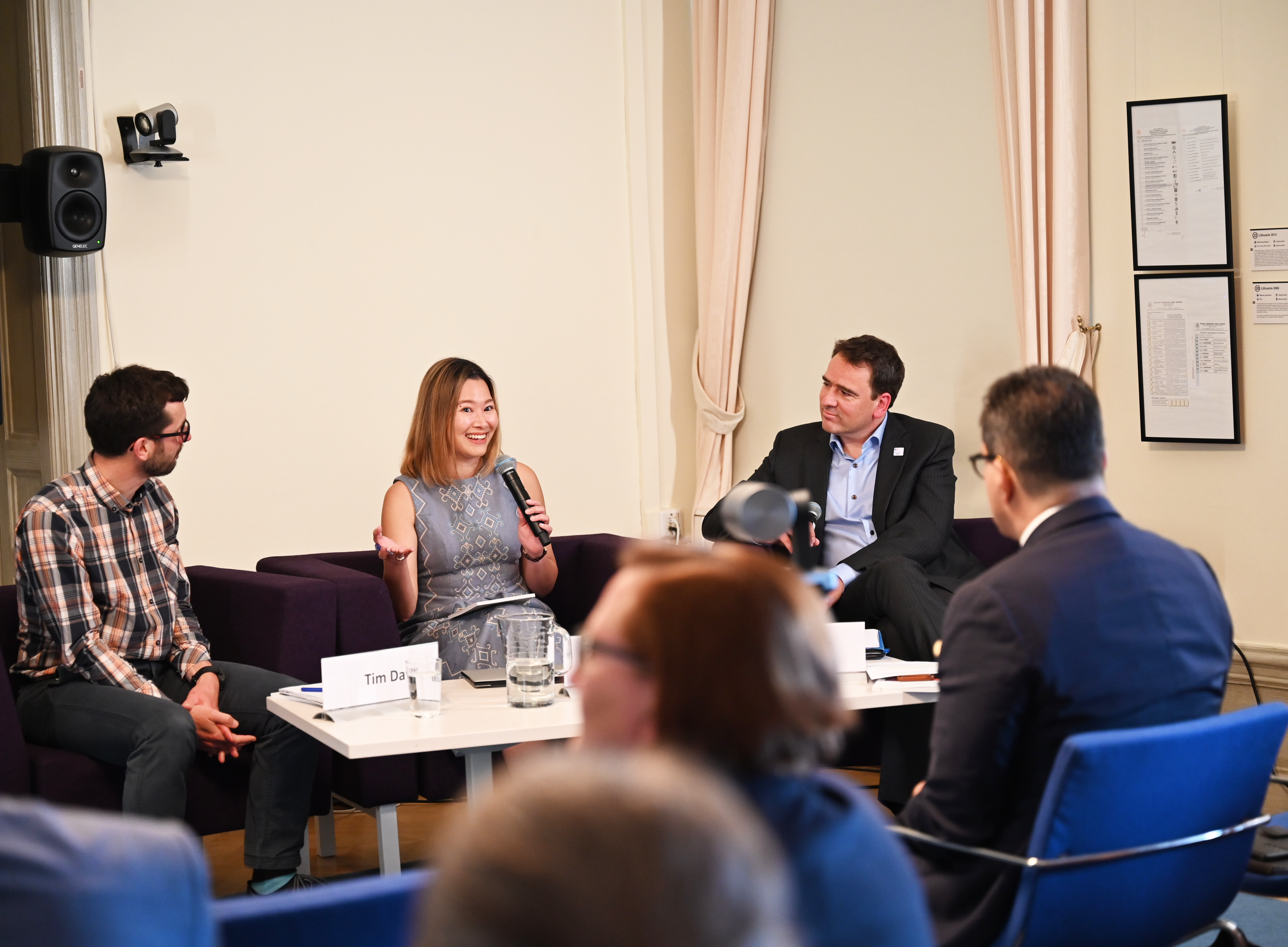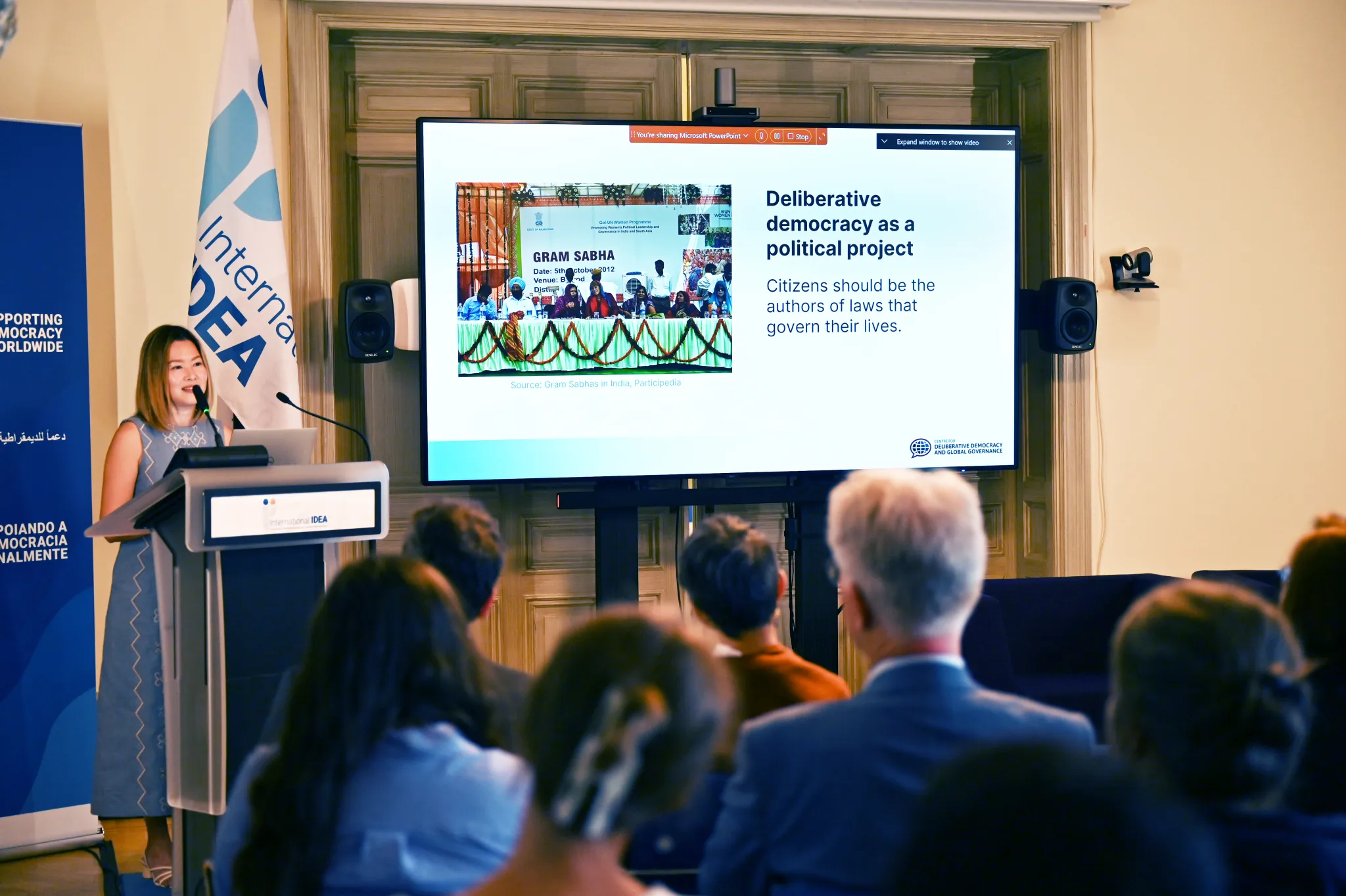
The video recording and the lecture manuscript are now available.
Nicole Curato is a Professor of Political Sociology at the Centre for Deliberative Democracy and Global Governance, University of Canberra. She is the co-author of the International IDEA publication “Deliberative Democracy and Climate Change: Exploring the Potential of Climate Assemblies in the Global South” published in June 2024.
In her Stockholm Series lecture, Nicole drew on her own research, from studying local citizen deliberation in the aftermaths of typhoon Haiyan in the Philippines 2013, to the Global Assembly on the Climate and Ecological Crisis around the UN climate negotiations in Glasgow 2021. She concluded by making the case for global citizen assemblies, arguing for their potential to ground debates and connect local experiences of climate change, to help bridge the Global North-South divide.
The event was opened by International IDEA’s Secretary-General Dr Kevin Casas-Zamora, and followed by a conversation with Dr Tim Daw, Project Leader of the Swedish Climate Assembly, moderated by Matthias Jäger, Head of Programme, Climate Change and Democracy, International IDEA. The conversation touched on topics such as the importance of timing of climate assemblies and of having assembly members discuss difficult questions and policy trade-offs, the strengths and weaknesses of organizing citizen assemblies outside a government mandate, and ways to include young people in climate deliberation. It underscored the importance of citizen deliberation during times of crisis and discussed how European climate assemblies could better connect to the everyday climate change experience of citizens in the Global South.
